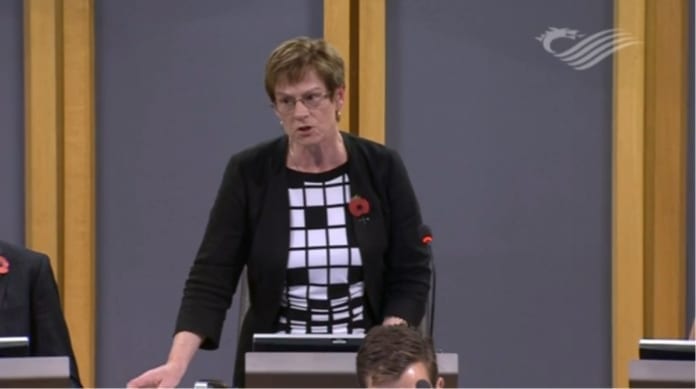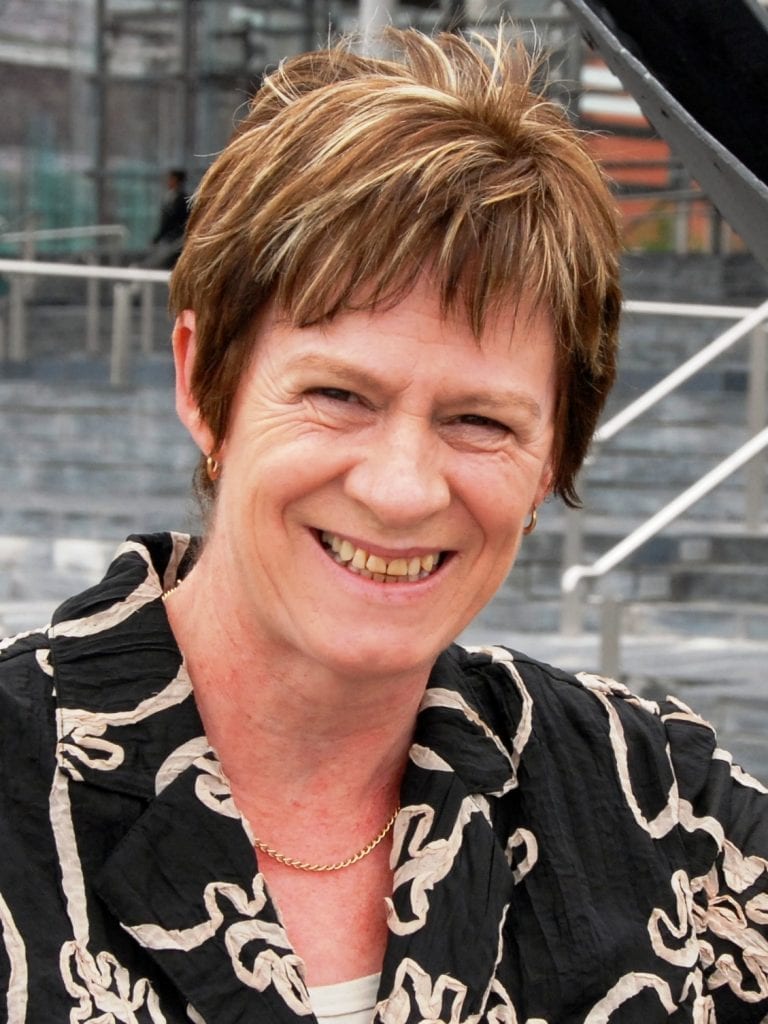Joyce highlights support for neonatal parents this World Prematurity Day
Improving access to psychological support at Welsh neonatal units “remains a priority for service improvement,” First Minister Mark Drakeford has said.
One in 10 babies in Wales will need neonatal care – around 2,800 babies were born premature or sick in 2020. However, not all neonatal units in Wales have adequate specialist mental health support for families.
Speaking at the Welsh Parliament on Tuesday, ahead of World Prematurity Day (17 Nov), Labour’s Joyce Watson asked the First Minister about mental health support for neonatal parents.
Joyce Watson MS asked:
“Tomorrow marks World Prematurity Day, when we turn our thoughts and our focus to premature birth, which, sadly, sometimes has an overwhelming impact on families. I know this is something your government has paid special attention to through the First 1000 Days programme, and with consistent investment in perinatal mental health services.
“The Welsh Government’s latest update on this to the Children, Young People and Education Committee set out the good progress that has been made on bereavement support – is there an update on what is being done to improve psychological support for neonatal parents as well, which the committee had also recommended?”
As well as detailing Welsh Government investment in this area, Mr Drakeford recounted his experience of visiting neonatal units when he was health minister. He went on to recognise the ‘huge pressure’ services are under – and thank neonatal organisations and staff.
Mark Drakeford MS replied:
“In the last Senedd term, the Welsh Government invested £110 million in neonatal developments across Wales. That includes specialist perinatal mental health services, which are now available in every health board in Wales, supported by over £3 million in annual mental health improvement funding.
“I’m very grateful to organisations such as Bliss for the support they offer to families in those circumstances, and I’m hugely grateful to those members of staff, because neonatal services in Wales have been under huge pressure, alongside the rest of the health service, in recent weeks, with absence rates of up to 30 per cent—staff falling ill with coronavirus, affected by it in other ways.
“When I was the health minister, I had the opportunity to visit a number of neonatal units. You barely want to breathe when you’re there with babies as tiny as you see being successfully looked after there. Meeting parents, it is a deeply distressing experience for many of them, and psychological support, as Joyce Watson has said, is very important for them too. There are royal college standards in this area, which every health board is working to meet, and where new funding has been made available by the Welsh Government to assist them in doing so. Improved access to psychological therapies remains a priority for service improvement funding in this area, alongside the physical infrastructure, which is very much evident in Joyce Watson’s part of Wales. But the therapeutic side is also receiving that investment.”
Bliss and NSPCC are working together to raise awareness of the impact that a baby’s early arrival can have on the whole family – 80% of parents told Bliss that their mental health got worse after their baby was discharged, with many facing post-natal depression and post-traumatic stress disorder.
The charities are calling on the Welsh Government to ensure that all parents can access the psychological support they need while their baby receives neonatal care, and once they have gone home.
Molly Gorman of Bliss said:
“Being on a neonatal unit can be isolating. Despite 3000 babies being born premature and sick in Wales every year, many parents don’t know anything about neonatal care until the moment their baby is admitted.
“That’s why we’re asking parents, family members, friends and healthcare professionals – anyone touched by the needs of premature babies – to share your #MyNeonatalStory and show families in neonatal care they’re not alone.“
NSPCC ‘s Dr Sarah Witcombe-Hayes added:
“Having a baby who is admitted to neonatal care is a very difficult and traumatic time for parents, and this can impact upon their mental health and wellbeing. It is vital that mental health support is in place for parents who have babies in neonatal care, but we know that there are gaps in current provision, meaning not all families can access the psychological support they need. This has to be addressed.
“As we mark World Prematurity Day on the 17th of November, we’re campaigning to help ensure that all new and expectant parents receive the perinatal mental health support they need, wherever they live in Wales. Through our Fight for a Fair Start campaign, we are calling on the Welsh Government to ensure that no parent falls through the gaps, by ensuring perinatal mental health services are well-funded and accessible for all families that need it”.
Bliss offers specialist support to families of babies admitted to neonatal care. If you need support, contact Bliss at hello@bliss.org.uk or visit www.bliss.org.uk for more information.
Help keep news FREE for our readers
Supporting your local community newspaper/online news outlet is crucial now more than ever. If you believe in independent journalism, then consider making a valuable contribution by making a one-time or monthly donation. We operate in rural areas where providing unbiased news can be challenging. Read More About Supporting The West Wales Chronicle


























